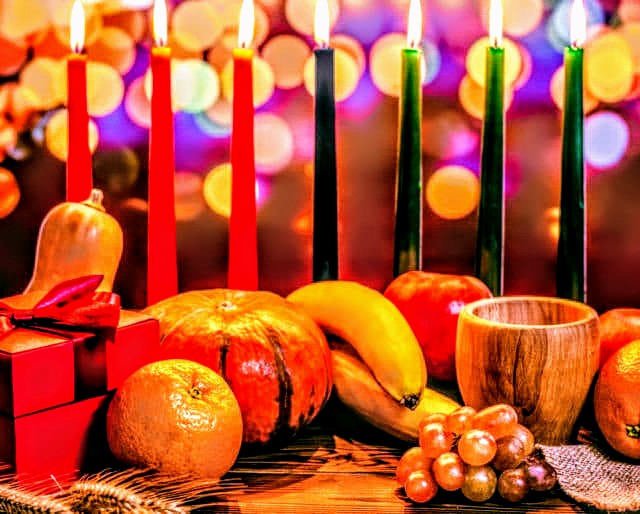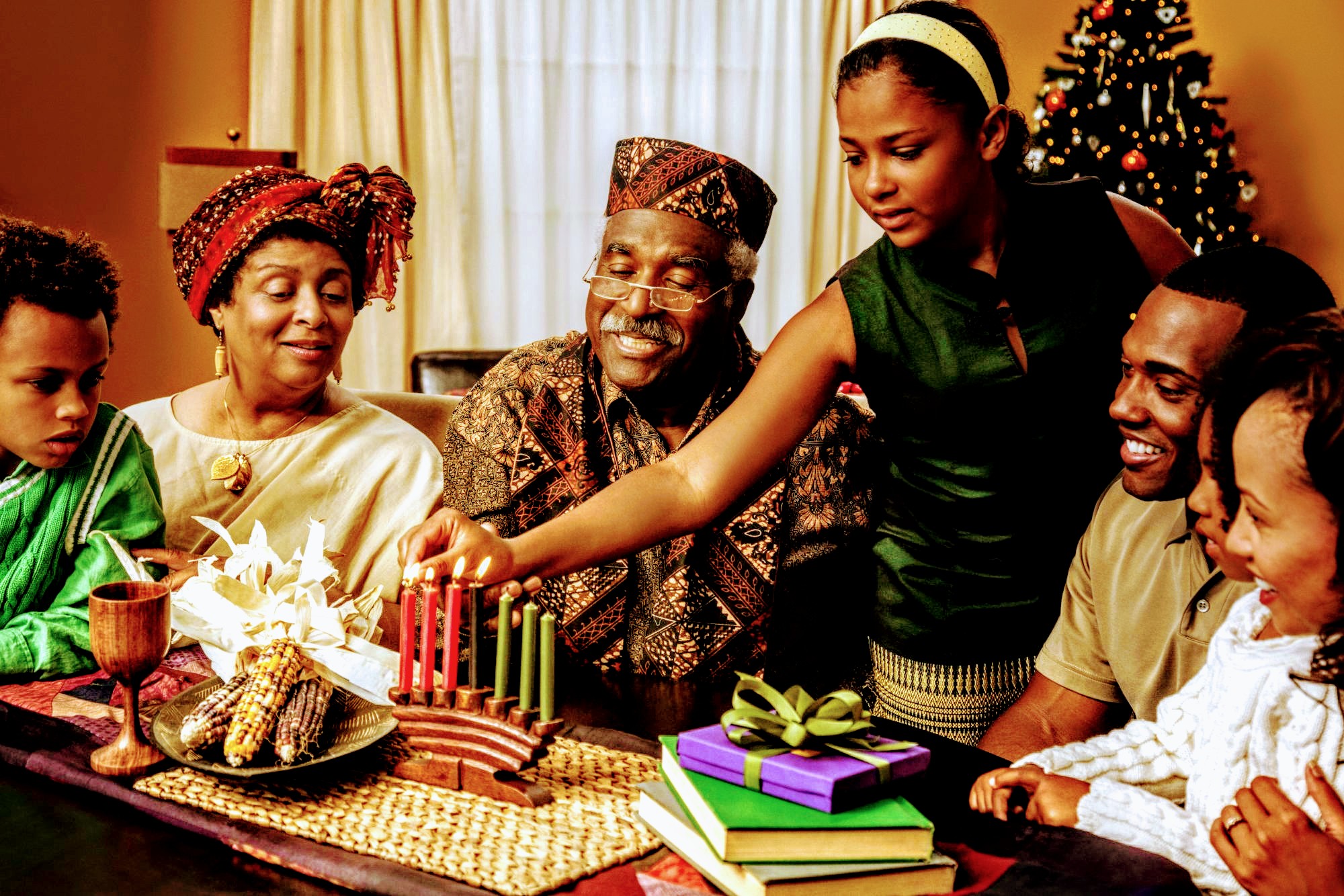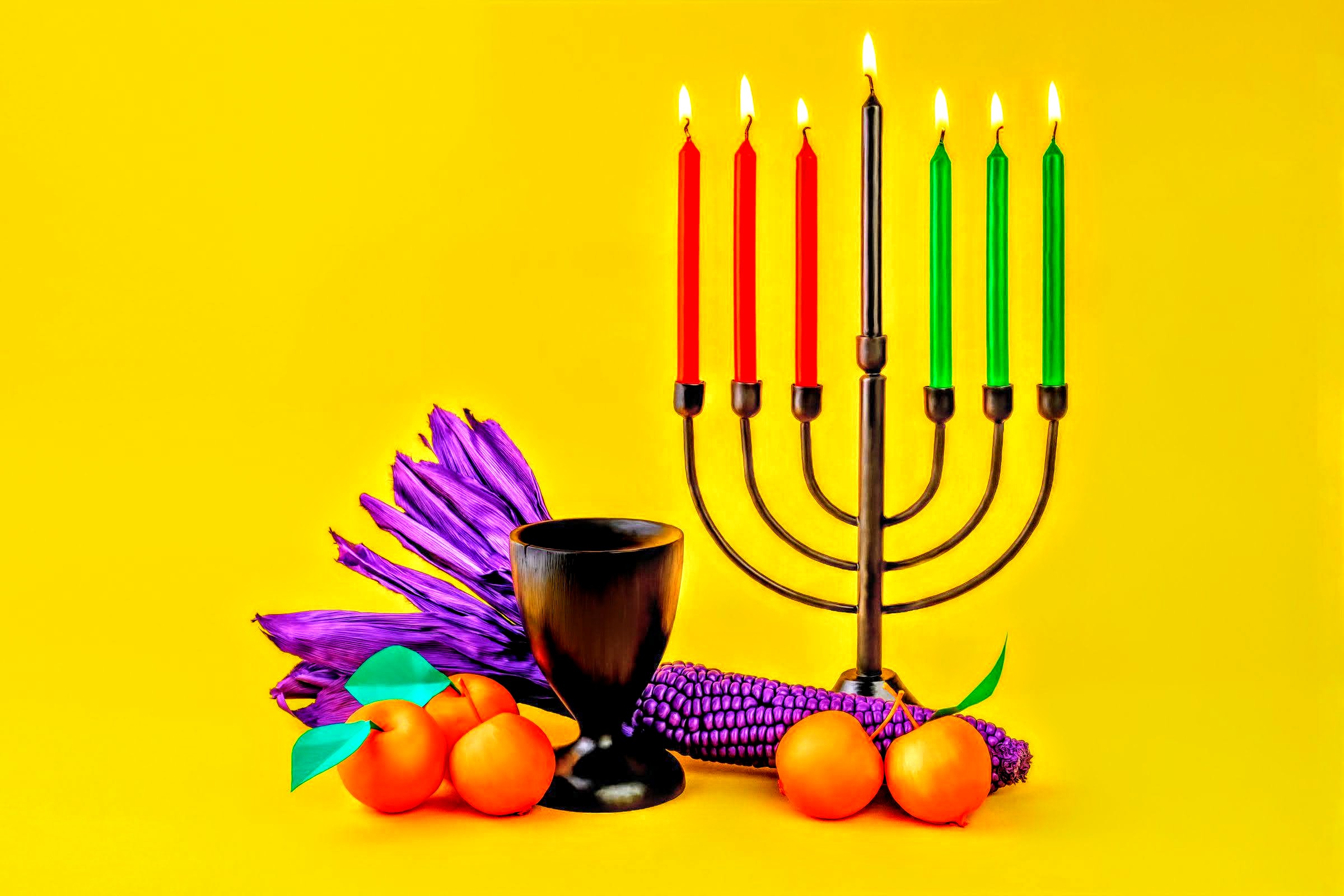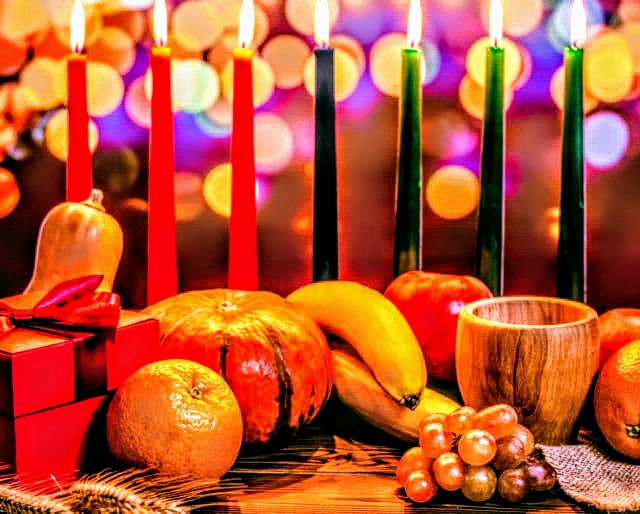January 1st is the last day of a 7-day celebration. How interesting that such a holiday expands into the initial day of the New Year! Fascinating, isn’t it? It is such a symbolic and metaphorical approach in understanding holidays and their connection to the philosophy and culture of a particular group of people. Some holiday celebrations have traditions, which dates back into thousands of years. And then, there are such holidays, which are fairly new, and were established for a particular period and point in time’s framing. Cultural holidays and celebrations are the affirmation of a people, and who they are. How they represent a people’s longing to stay connected with their culture and her/history is intriguing.
From December 26-January 1, the holiday of Kwanzaa is celebrated! It is a Black American holiday, which was created in 1966, by Dr. Maulana Karenga-a Black American, Chairman and Professor of Black Studies at California State University. It was created out of a desire, and yearning, to give Black American people a sense of pride in their connection to the African Continent. Simultaneously, there was also the understanding of bringing Black American people together, in the celebration of our experiences, within these United States of America.
There are 7 principles in the celebration of Kwanzaa. Each day is designated with a new principle. 7 candles decorate the kinara. Red represents the blood of the people. Green symbolizes the land. Lastly, there is the color, Black, which represents the people. Dr. Karenga utilized the language of Kiswahili, in order to maintain certain traces from the African Continent. Of course, there are West African languages of Ashanti, Twi, Akan, Igbo, and others. However, who are Black American people? Furthermore, do they have a culture, and tongue, of their own? Well, OF COURSE! There is, BAVE (Black American Vernacular English), and its myriad dialects based on differences in its geographical location. Our Mother Tongues, are rich and diverse, indeed; as is the very narrative of the Black America’s, cultural experiences. Nevertheless, this holiday is one of many attempts to bring some connectivity to the Continent. Simultaneously, in recognition of Black America’s authenticity, we must also recognize her/historical presence and cultural aesthetics of Black American Church-based cultures, throughout the United States of American. Such is also very important.
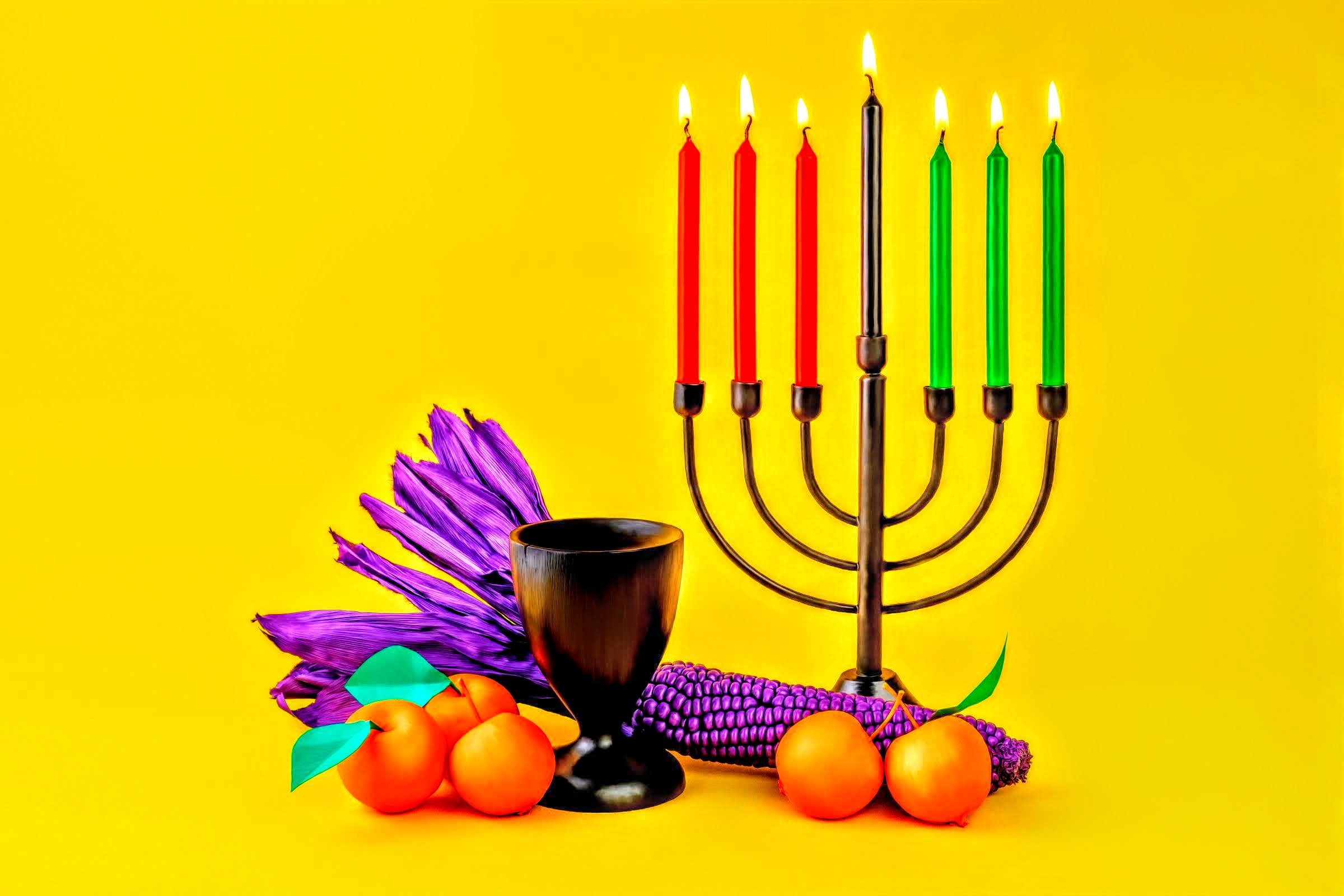
So, what does the 2020 year celebration, leading into the 2021 year mean for Black American people? This is specifically for those who have been celebrating it. Kindly take note that such is not celebrated, throughout Black American communities. For those aiming to participate in its annual presentation, then yes, it is available. Kindly note that Kwanzaa is also celebrated in certain parts of the Caribbean, and the African Continent.
2020 was the year that Black American people had to assess what it meant to move through these particular landscapes of the United States. What does it mean to be a Black American woman or man? How do these very terms translate into a particular, and peculiar, group of people? What is the culinary, fashion, music, linguistics, style, and values, which makes a person, BLACK AMERICAN? Now, that is an intriguing question to ask. This year, 2020, comes to force a centering of Black American people. Conversations on race, and matriculation within US landscapes, affirms that this particular people have gone through a unique experience; unlike any other group in the United States. That is what it entails. So, how does Kwanzaa come to symbolize this?
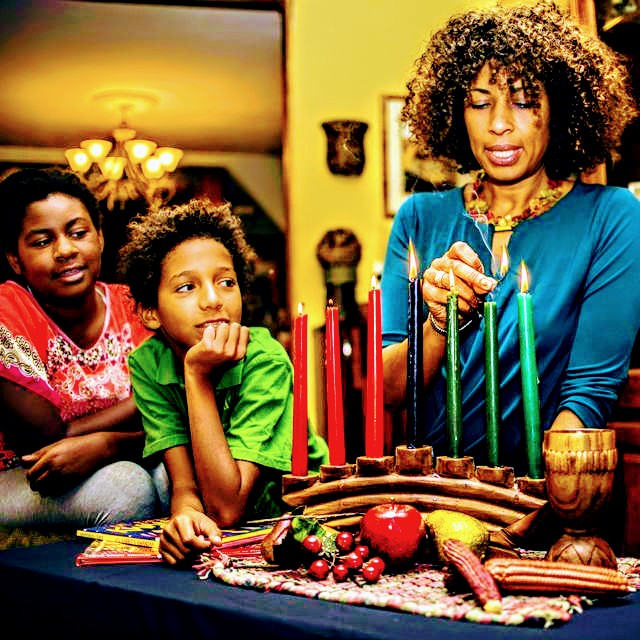
\For starters, it represents the principles and our apparent need to revive them within our communities, on a consistent basis. That’s what it symbolizes. Furthermore, one must also acknowledge just how these principles bring affirmation to the very Spirit of Black American people, our her/history, and our communities. Unity. Self-Determination. Collective Work. Cooperative Economics. Purpose. Creativity. Faith. There is the Unity Cup, representations of harvest, and the fruits of Motherhood and her children. They are the perfect gumbo and elixir for the wellness of our very psyche. For in our Black American gardens, these vitamins must be planted, nourished, and harvested for the upcoming year. Of course, it doesn’t just stop there. It must continue throughout the very year. It serves as a reminder into how our community must re-center ourselves withing the nourishment, and nutrition, of these principals.
From the very roots of our families, to the traditions of our every day living, the principles of this special holiday are needed more than ever. Sometimes, a people end up losing their way. Losing their way, while frantically moving in a direction to find meaning in the current reality. The frustrations. The Anger. The Pain. The Joys. The Memory. The yearning for something, more.
Honoring our realities and what is needed to moving into this 2021 New Year requires a perfect assessment for what is happening with Black America! What is our reality? That is another piece on its own. Nevertheless, these principles are a start. So, for a final day of Kwanzaa, let the memory, direction, and meaning for this current year be relayed to how we will proceed into a new awakening for our people, land, blood, and nourishment of these Blackened gardens, birthed, and tended to, in US soils.
